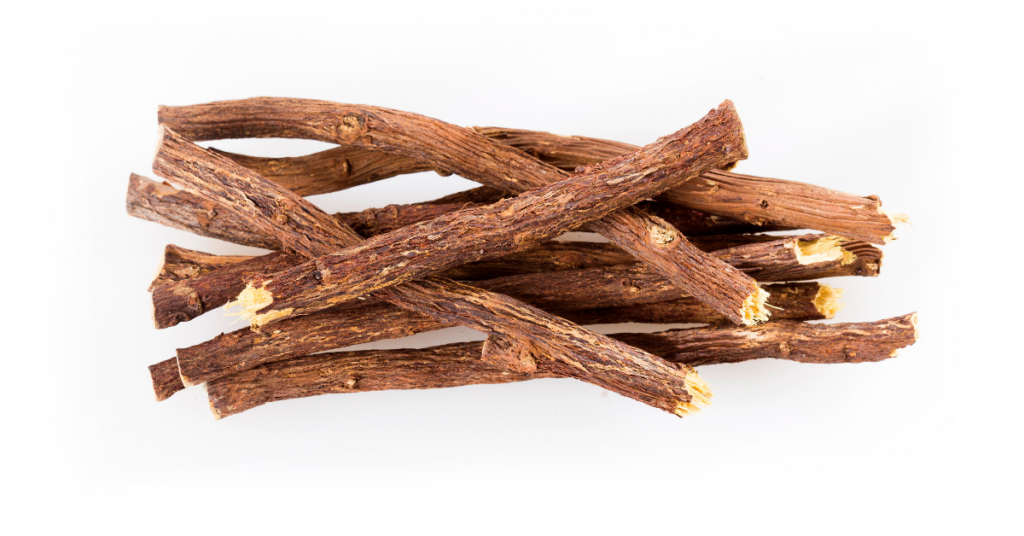Licorice (Glycyrrihiza glabra)
Have you ever wondered why the Irish beer Guinness tastes the way it does? Part of the reason for the stout’s distinctive flavour is that it contains licorice!
Its main component is glycyrrihizin, a root that is 50 times sweeter than sugar. Unfortunately, it is also toxic in its natural state, so a deglycyrrihizinated version is used in herbal medicine. This herb is recorded on Assyrian tablets and Egyptian papyri denoting its use for more than 3,000 years, with the Dominican Black Friars introducing it to England in the 15th century. Much confectionery referred to as ‘licorice’ has actually been flavoured with aniseed oil.
Licorice blends with a variety of other herbs very well, thus creating harmony between them all. It also masks the bitter taste of herbs making them more palatable.
Other names: Sweetwood, liquorice (British).
Description and the places it grows in
Herbaceous perennial grown in Europe and West Pakistan.
Parts used
Root.
Uses
Demulcent, expectorant, laxative, spasmodic, anti-inflammatory.
Endocrine system and adrenal glands: In the body the glycyrrhizin yields glycyrrhetinic acid, which has a similar structure to the hormones of the adrenal cortex, and its adrenal like effect makes it anti-allergic.
Digestive system: Gastritis, colic. It lowers stomach acid and relieves heartburn.
Stomach Ulcers: Licorice spreads a protective gel over the lining of the stomach and eases spasms.
Respiratory system: Bronchitis, coughs. It reduces irritation and speeds up recovery. In ancient cultures it was used in cough remedies, as it reduces irritation and is also an expectorant.
Constituents
Glycyrrhizin, flavonoids, isoflavonoids, saposins, starch, sugars, triterpenoid, coumarins, sterols, amino acids, gums, amines, volatile oils.
Contraindications
Licorice increases blood pressure when taken in large doses, so it should not be used by anyone who is being treated for high blood pressure. It can make some people retain water as is causes the body to retain sodium but lose potassium. Large doses can bring on shortness of breath and headaches.


